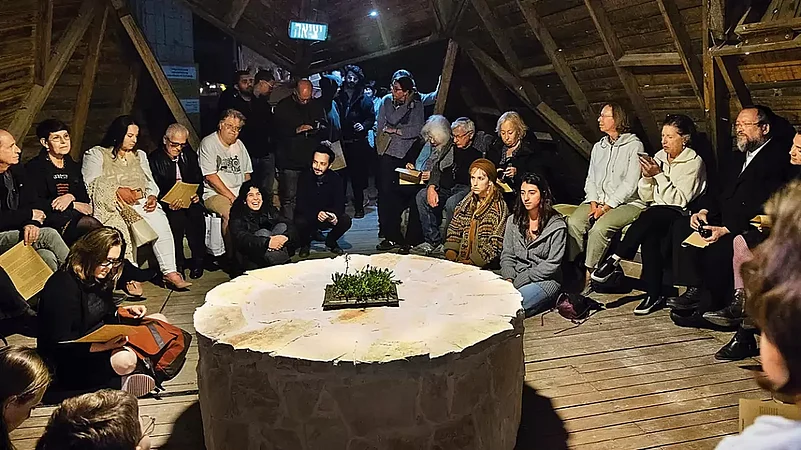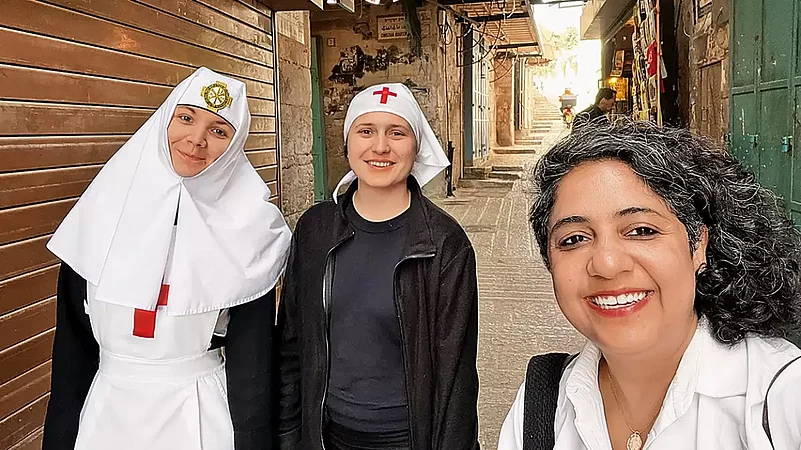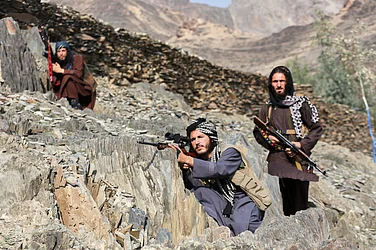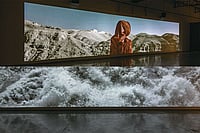Divided by Borders
During my 2022 fellowship in Jerusalem, a city entrenched in contemporary conflict, I frequently crossed the tall borders that separated the Israel and Palestinian communities. In just two weeks, the city’s complex tapestry of human behaviour based on religious and racial differences became evident. Our introduction to the city was unapologetically immersive, with our abode located near the old city, a place where people of all Abrahamic religions coexist, sharing food, spices, crafts, and a history of religious supremacy.
Coming from India, a country also grappling with religious, caste and class animosities, I contemplated the root cause of the conflict—the notion of ownership. I viewed this through an environmentalist lens, questioning who has the authority to claim ownership over land and resources, leading to the creation of borders. In an era of impending environmental catastrophe, our focus should shift towards safeguarding resources and lives from natural forces, rather than fuelling the machinery of war and fear.

Tenants on the Planet
I seized the opportunity to challenge the concept of land ownership while in a place where Abrahamic religions coexist with all their complexities. We are, in essence, tenants on this planet and cannot assert ownership over nature, a perspective also echoed in ancient texts. This ideal may seem utopian in our structured world.
My curiosity led me to explore the human-nature relationship within all three Abrahamic religions, where I discovered striking similarities in teachings about living in harmony with nature, understanding its mysteries, and acknowledging its supremacy. Through the collaboration of voices from different backgrounds, I created an immersive audio-visual piece displayed at Muslala, a community space, and rooftop garden. This piece serves as a profound exploration of devotion.
In conclusion, I appeal to people to find common ground in the philosophies of various religions rather than use religion as a divisive force.
Vibha Galhotra is a conceptual artist whose multimedia oeuvre addresses the shifting topography of a world radically transformed by climate change, consumerism, capitalism and globalisation























